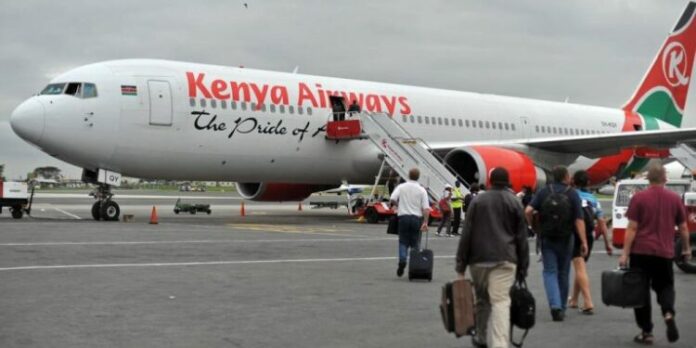A proposed change in Kenyan taxation could affect air travel affordability.
Liz Aluvanze, CEO of the Kenya Association of Air Operators ( KAAO), expressed concerns that the inclusion of value added tax ( VAT ) on operational services in the Finance bill 2024 could lead to a significant increase in flight costs.
During a recent interview on Spice FM on Tuesday morning, industry expert Aluvanze warned that taxing aircraft leases, equipment and maintenance could harm the aviation sector.
Airlines are likely to pass these extra costs on to passengers, through high ticket prices. The Bill, according to Aluvanze, would impose VAT on airline operations.
Aluvanze argues that this goes against the norm in most countries, where such services are exempt from VAT. She said that with the introduction of the new taxes, the prices of flights with domestic registered airlines are expected to rise significantly from 30 to 40 percent.
Kenya’s Finance Bill 2024 proposes imposing VAT on aircraft weighing 2,000 to 15,000 kilograms. This measure is expected to significantly affect a majority of Kenya airline operators.
Kenyan airlines could be at a disadvantage compared to airlines in neighboring East African countries because those countries offer tax breaks that make it cheaper to run an airline.
I paid agent Sh. 406,000 for air ticket to Canada; got returned to Nairobi in Ethiopia
Furthermore, Liz Aluvanze pointed out that Kenya has nearly 88 registered aircraft maintenance companies, and the tax increase could jeopardize this thriving sector.
Kenya’s air transport sector, including its maintenance companies, plays a vital role in the economy.
According to the CEO, the entire air transport ecosystem generates approximately 400 billion shillings ( 3.2 billion dollars) in revenue, significantly contributing to the tourism industry.
Kenyan businesses face a double threat from proposed tax measures. The Kenya Association of Manufacturers (KAM), warned that these taxes could force manufacturers out of business, leading them to relocate to other East African countries with more favorable policies.
Similarly, air operators echo these concerns, highlighting the potential for the new taxes to cripple their industry.








